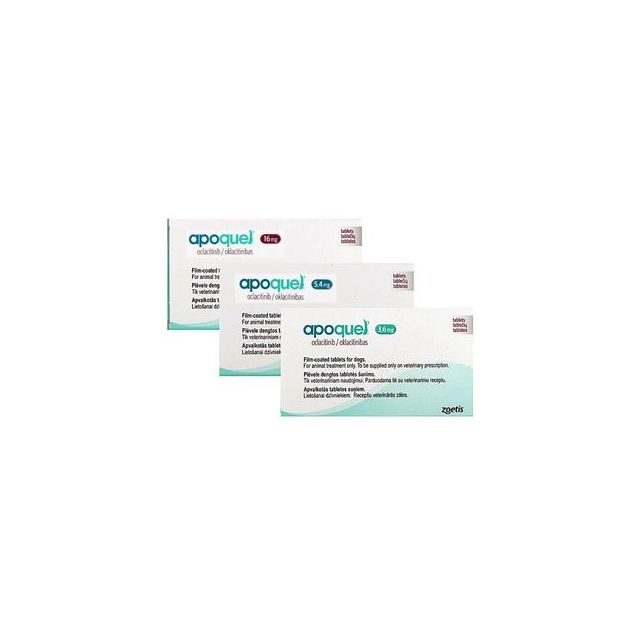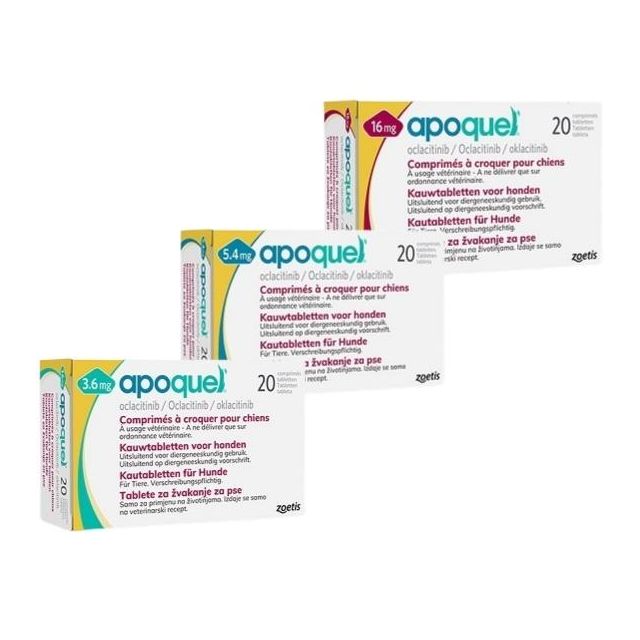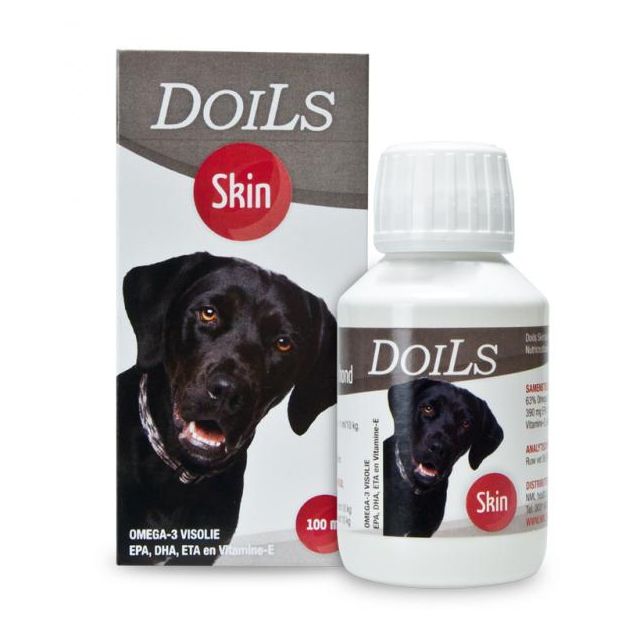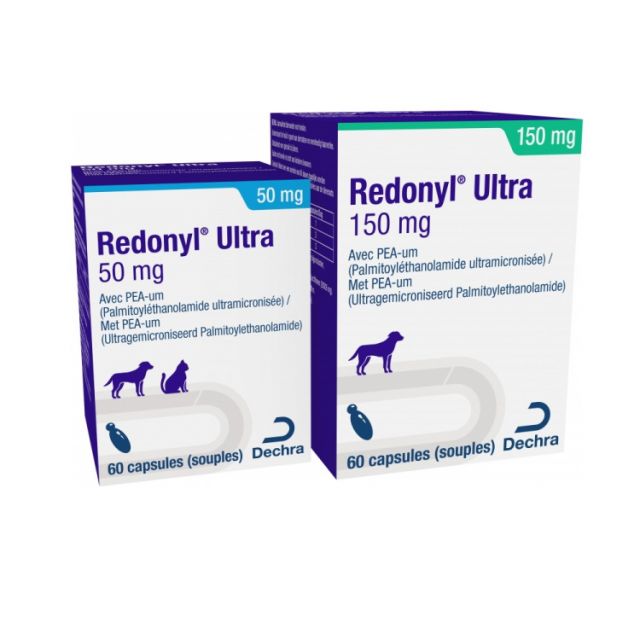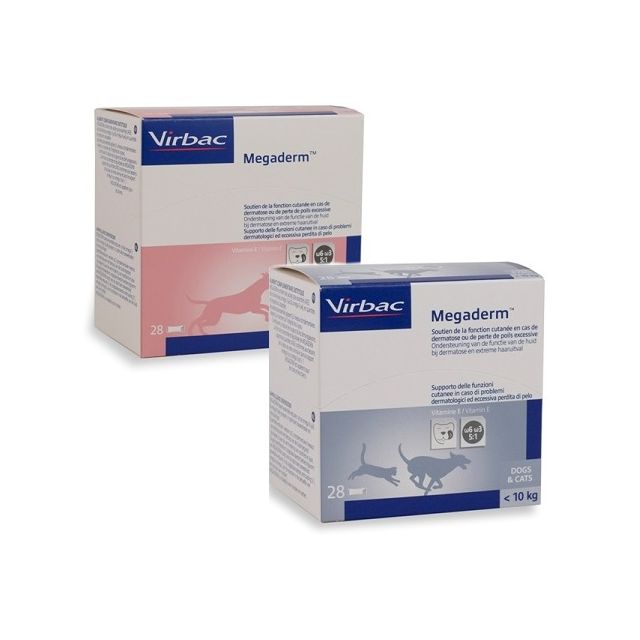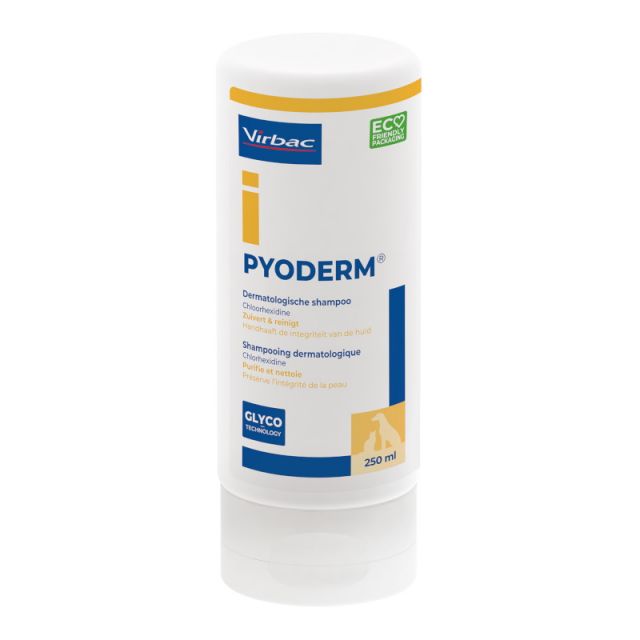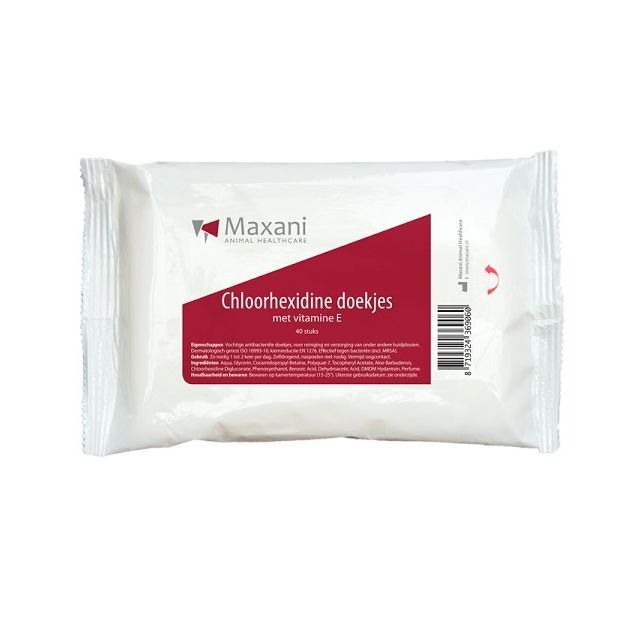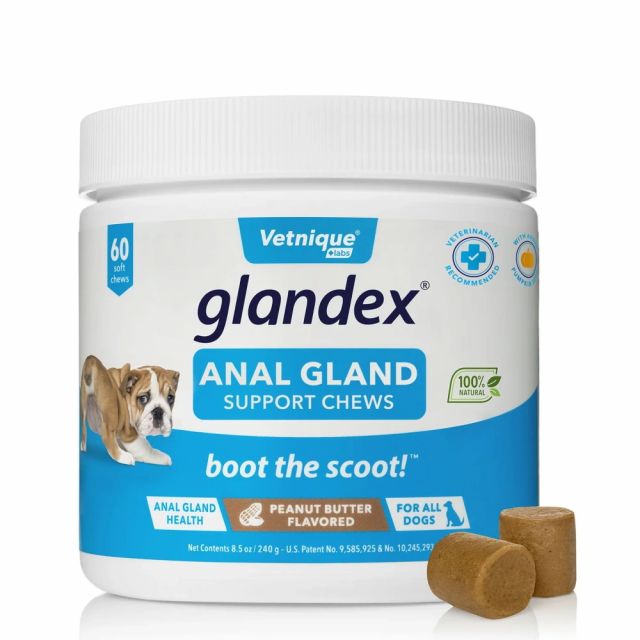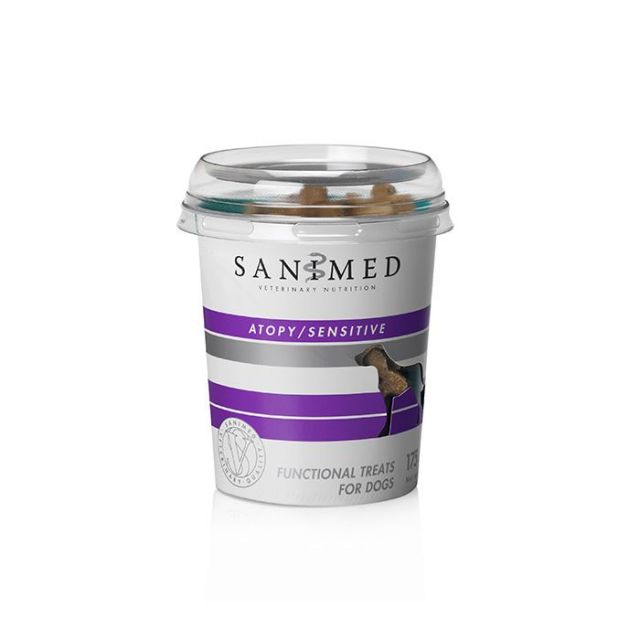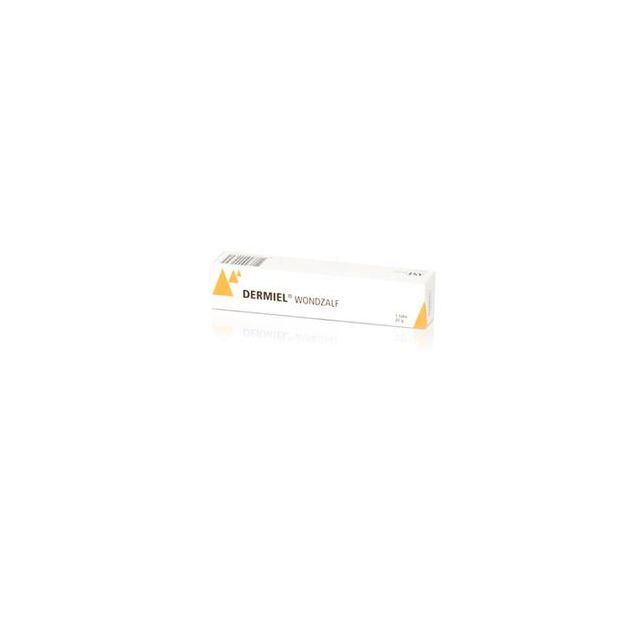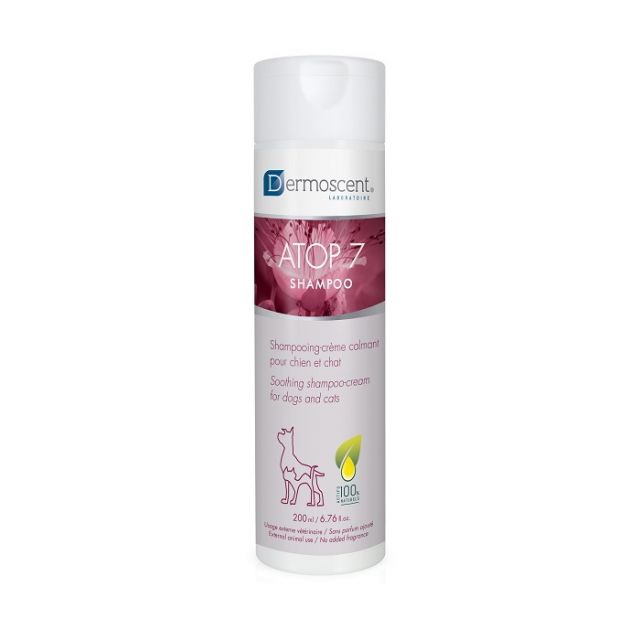Apoquel
Apoquel modulates the immune system in skin allergies such as atopy in dogs. As a result, Apoquel reduces itching and other allergy symptoms. Apoquel is available as a film-coated tablet or as a flavored chewable tablet and is available in packs of 20 or 100 pieces with 3.6 mg, 5.4 mg, or 16 mg per tablet. The chewable tablets contain an animal flavoring and may therefore not be suitable if there is concurrent food hypersensitivity or if this cannot be ruled out.
Administration of Apoquel
Apoquel (chewable) tablets can be administered with or without food. The duration and frequency (once or twice daily) for which your dog needs Apoquel will be determined by your veterinarian.
Apoquel is only available with a prescription from your veterinarian.
Additional Medications and Supplements
Since atopy is a chronic condition, lifelong or regularly recurring treatment is usually required. Often, the treatment involves multiple aspects, and one specific medication is not sufficient.
Medications for Itching
Itching is the main symptom of atopy in dogs. Almost every dog with atopy needs medication to suppress itching at some point or regularly. Apoquel can be given both long-term or as a short course during flare-ups or seasonal itching. Sometimes, it is sufficient to apply anti-itch medication locally, for example, in the form of a spray or ointment.
Supporting the Skin Barrier
In dogs with atopy, the skin barrier is weakened. This reduces protection against external invaders such as bacteria and yeasts, and the skin dries out much faster. This is because the skin barrier retains moisture in the skin less effectively. It is therefore advisable to support your dog's skin barrier by providing extra omega-3 fatty acids (EPA and DHA) from fish oil, such as Doils Skin or Seraquin Omega. Redonyl Ultra contains fatty acids as well as PEA-um and biotin to support the skin.
With the spot-on product Allerderm Spot-On, you can support your dog's skin barrier from the outside. Allerderm contains a lipid complex that matches the lipids in the skin barrier in composition and structure. This helps the spot-on product restore the skin barrier.
Treating Inflammation and Infections of the Skin
Due to the weakened skin barrier, dogs with atopy often have recurrent infections with bacteria and/or yeasts. Sometimes, medication is needed, such as antibiotics, medicated shampoos, or (ear) ointments.
Often, however, this can be controlled with the regular use of a mild antibacterial shampoo or mousse, such as Douxo Pyo.
Small wounds can be treated with a soothing ointment based on honey, such as Dermiel wound ointment. Hotspots are common in dogs with atopy. Maxani Cleanser Spray or Dermacool Hotspot Spray are good products to have on hand to tackle hotspots.
Caring for Sensitive Skin
Frequent washing is not good for dogs with sensitive skin. If it is necessary, use a mild, moisturizing shampoo such as Dermoscent Atop 7 shampoo or Allermyl. A honey-based shampoo is also extremely gentle and caring for your dog's atopic skin. If recurrent infections occur, it may be necessary to wash your dog regularly, so always follow your veterinarian's advice. Additionally, it is important to brush your dog regularly with a soft brush and, if relevant, to keep the coat short by using a good groomer. For the less hairy areas, it is also important to provide good sun protection in the summer. Skin folds can be kept clean and dry with the help of caring wipes. It is also helpful to care for dry skin with a moisturizing lotion based on oats, such as DermAllay Oatmeal Conditioner Spray.
Dogs with atopic dermatitis have very sensitive paws. Regularly check your dog's paws for the presence of things like grass seeds or wounds. You can protect your dog's paw pads with Paw Wax made from honey and beeswax. For dogs that frequently suffer from ear infections, it can be helpful to regularly use a caring ear cleaner such as CleanAural Sensitive. For dogs with atopy, it is of course important that they do not scratch unnecessarily, so it is important to use a good flea control.
Unfortunately, an atopic dog rarely becomes completely symptom-free. Itching and skin inflammation flare up from time to time. With proper care and medication, however, symptoms can often be reasonably well controlled. If you have any questions about Apoquel, please contact us.

